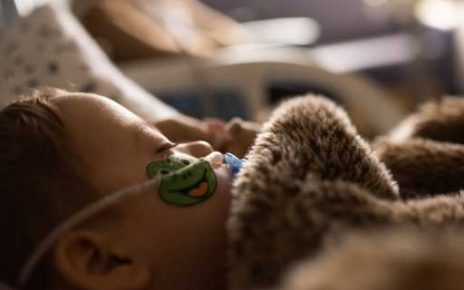Annie Lovegrove, 21, almost died after her mouth ulcer turned out to be a sign of a rare blood disease.
Annie was given antibiotics for the ulcer by a GP in January and then was diagnosed with tonsillitis.
After her Mum rushed her to A & E, she was diagnosed with ‘very severe’ Aplastic Anemia, a blood disorder where the bone marrow and stem cells do not produce enough blood cells.
Annie needed a bone marrow transplant from her sister. She also lost her hair and became infertile during chemotherapy. She has received more than 50 blood transfusions.
‘My advice for anyone with similar symptoms would be to not be afraid to go to the doctors and feel you are wasting their time, because if my mum hadn’t trusted her instinct then I wouldn’t be here sharing my story,’ she said.
Annie, an admin assistant, suffered extreme fatigue, bruising, high temperatures, loss of appetite, nausea, mouth ulcers and petechiae, which are small red dots all over the body.
Annie says she didn’t use her phone for more than two weeks and was continuously in and out of sleep because she was so weak.

Both her sisters were tested as willing donors and luckily 17 year old Millie was a perfect match.
‘As a family we were ecstatic that Millie would more or less save my life,’ said Annie, but added that it was ‘a tough process for Millie to go through, as she was also due to take an A-Level exam.’
The chemotherapy was needed to shut down her body’s immune system so the marrow wouldn’t be rejected. It made her infertile, so Annie froze fifteen eggs beforehand.
‘Finding out that the chemo would make me infertile was awful to hear,’ said Annie. ‘Having a family in the future is such a big deal for me.’

Losing her hair was also very hard.
She said: ‘When it first started happening I convinced myself it was just thinning until I was waking up every morning with clumps of hair on my pillow. I knew then I had to take control, so my mum shaved it off and strangely I felt better.’
The transplant was a success and Annie returned home from hospital six months later. She still needs ongoing treatment.
‘I can still reject the transplant within the next year so as much as I would like to go back to my ‘normal’ lifestyle I still have to take the next 10 months easy,’ she said.
The NHS recommends seeing a dentist or GP if your mouth ulcer lasts longer than three weeks, keeps coming back or becomes more painful and red, as it could be infected. Long lasting ulcers can be a sign of mouth cancer, and you should get them checked to be safe.
Source: Read Full Article



